Advertisement
A.R.T's '1776' calls on us to remember those left out of the Declaration of Independence
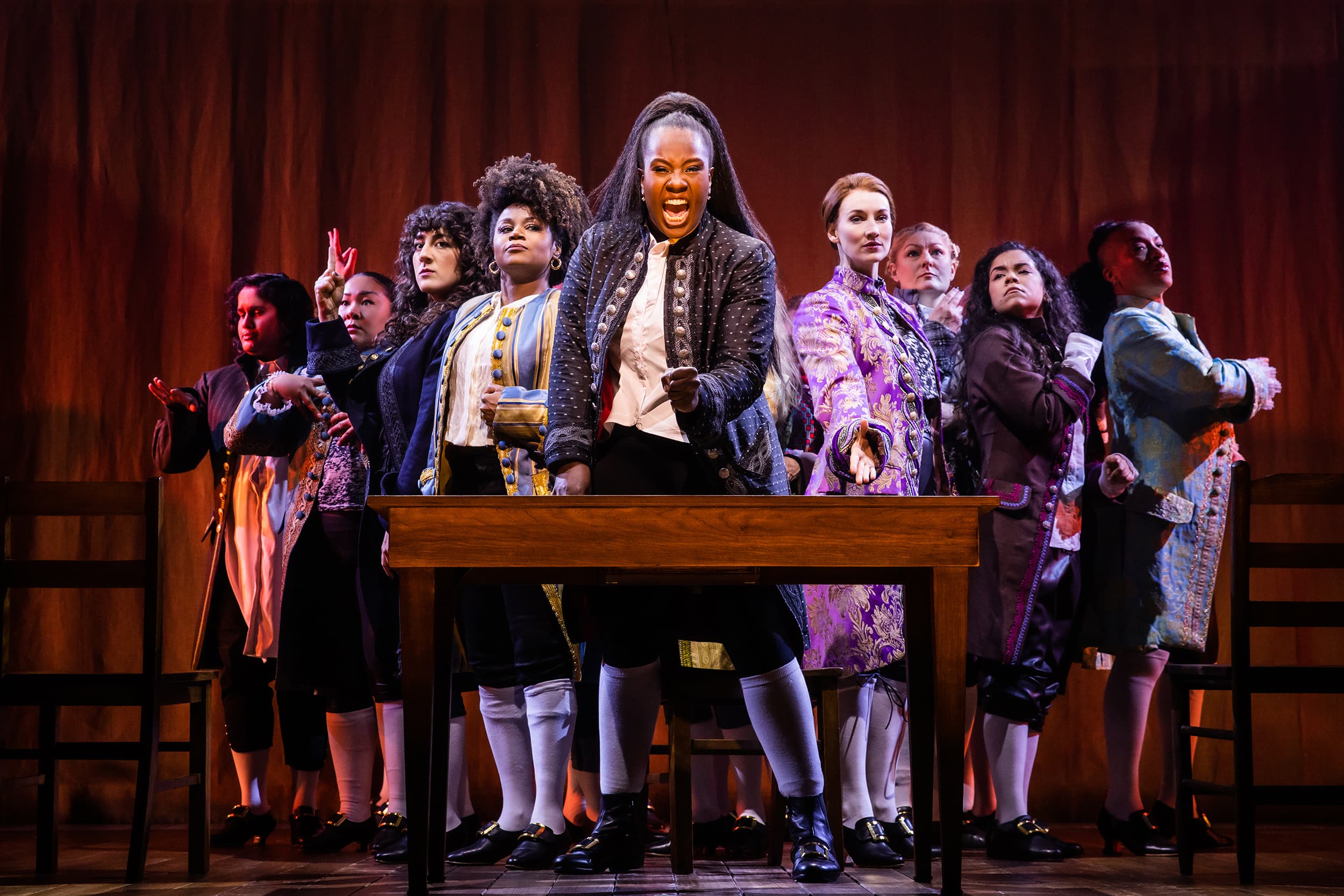
This new iteration of “1776” calls on us to remember the contributions of all whose lives were left unacknowledged or erased when the Declaration of Independence was signed, namely anyone who is not a cisgender, white, property-owning man. Currently showing at the American Repertory Theater (through July 24), it soon moves to Broadway.
The cast is made up of immigrants, Native Americans, ancestors of the enslaved and oppressed, queer and trans bodies. They make the audience reckon with the question: Independence for whom? And what kind of nation would this be if they had been considered in the first place?
“When you think of the words coming out of our mouths and our bodies in that space, I think they land differently on the audience,” said Liz Mikel, who plays John Hancock, a delegate from Massachusetts and president of the second continental congress.
She and the rest of the cast, who all portray founding fathers, researched their personal lineage when they started rehearsing on Zoom in 2020. Professors taught them about this country’s history. Mikel discovered ancestors who hailed from the Carolinas, to Alabama and Mississippi before they eventually migrated to Texas. She traced her enslaved great-great-grandfather's line to a specific plantation and beyond.
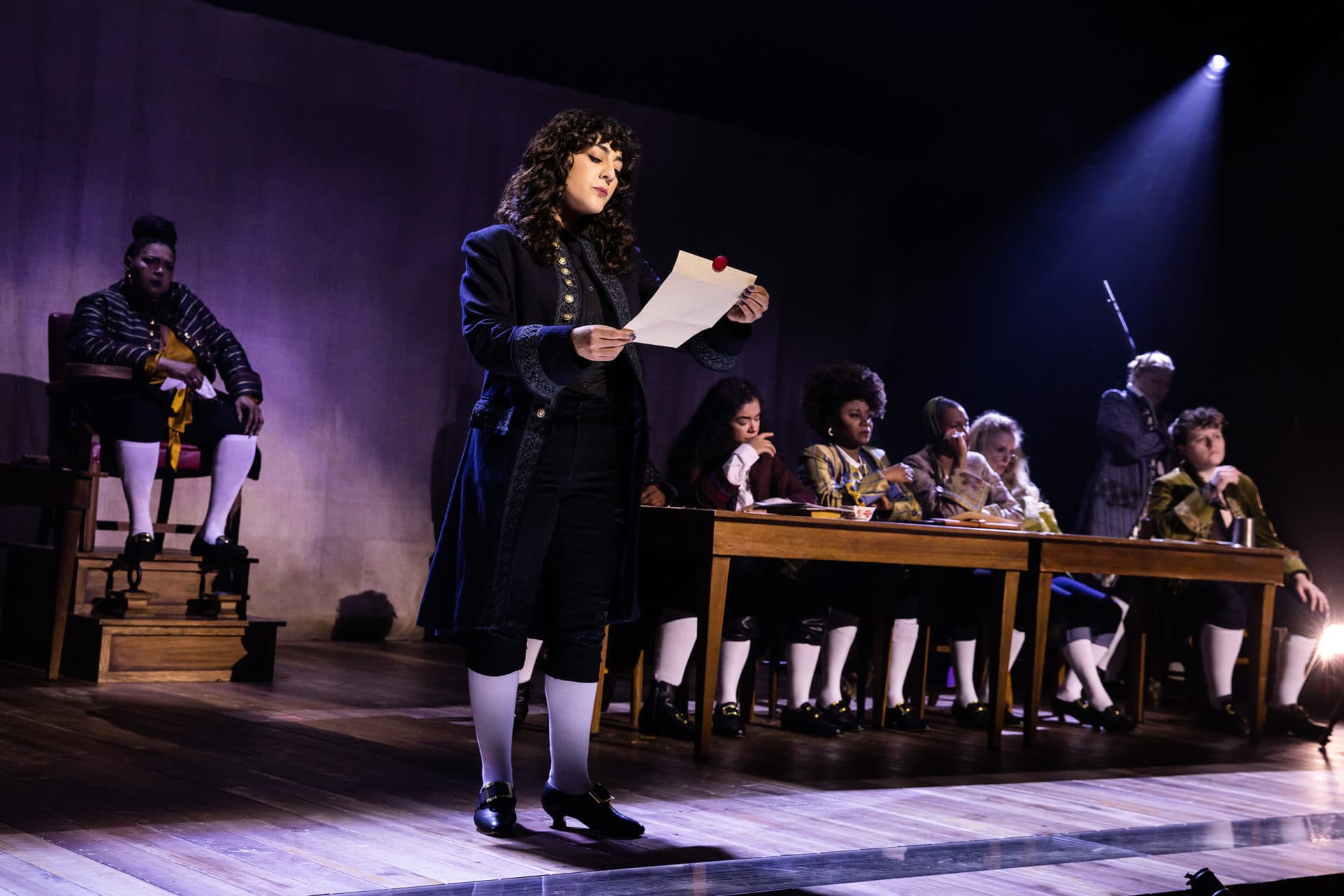
“When I think of some of my white counterparts in the play who can directly line their history all the way back and all the way back,” Mikel said. “And there's a disconnect from people who were physically in the trenches building, feeding, clothing a nation, on our backs.”
The casting and staging of the play made past and present collide, art commenting on history as history is being legislated. When the Supreme Court overturned the constitutional right to an abortion, Sara Porkalob struggled. The Filipina artist and activist dons big gold hoops as South Carolina delegate Edward Rutledge, a white supremacist and the show’s main antagonist. She made the intentional decision to make her character someone who would suck the air out of a room, who took up space, who questioned the innate humanity of enslaved people.
“It was the first time that I actually dreaded stepping into his shoes,” Porkalob said. “I had never done that before because I decided in 2012 that I was no longer going to allow white men to have that kind of power over me.”
Advertisement
After graduating from a BFA program where those in charge were old white guys along with the faculty and the material they read was all written by old white guys, Porkalob said never again.
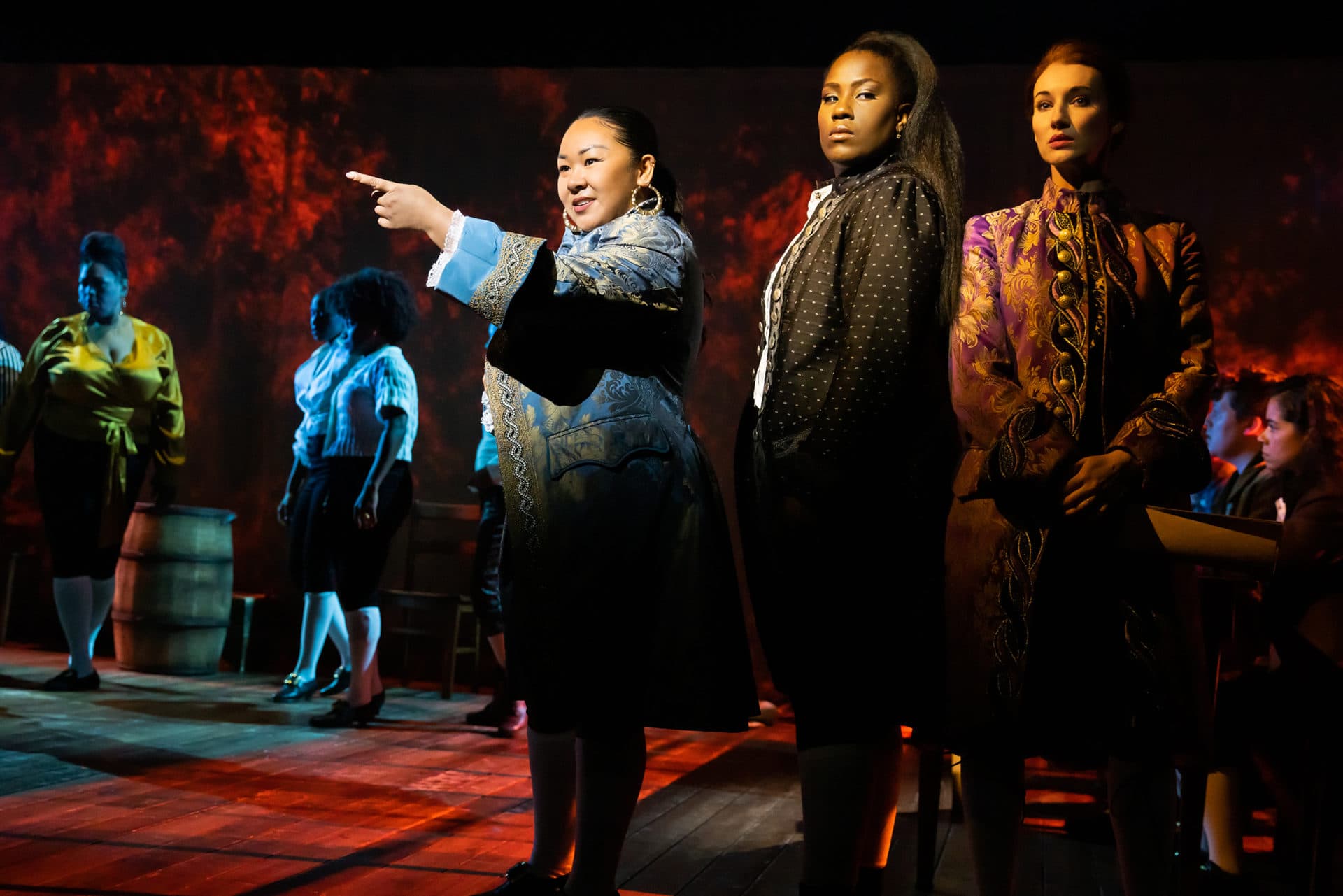
“Never again will I let the rules of white men dominate my life so completely,” she said. But that night of the ruling, Porkalob says she sobbed that day before her big number, “Molasses to Rum,” where Rutledge calls out the delegates from the north for profiting off slavery, which they’re trying to abolish.
“What's that I smell floating down from the North? Could it be the aroma of hypocrisy?” Porkalob said as Rutledge. “For who holds the other end of that filthy purse string, Mr. Adams? Our northern brethren are feeling a bit tender toward our slaves. They don't like to keep slaves! Oh, no. But they are willing to be considerable carriers of slaves to others.”
As the daughter of two lesbians, one an immigrant from the Philippines, the other a Black American, Porkalob grew up surrounded by strong, opinionated women. She’s written plays inspired by her family’s legacy. As a woman of color, acting out the role of an oppressor can take a heavy toll, especially that evening.
“To really step into this and to push through these words and to lean into the violence of this song so that the people in the audience can feel the violence of this history,” she said. “And here we are. Here we are still feeling the reverberations, the ramifications of our country's founding.”
The actors in “1776” look the audience in the eye. One of those moments includes the only line not in the original production. It’s from a letter Abigail Adams wrote to John Adams as he argued for independence. She told him, “Remember the ladies.”
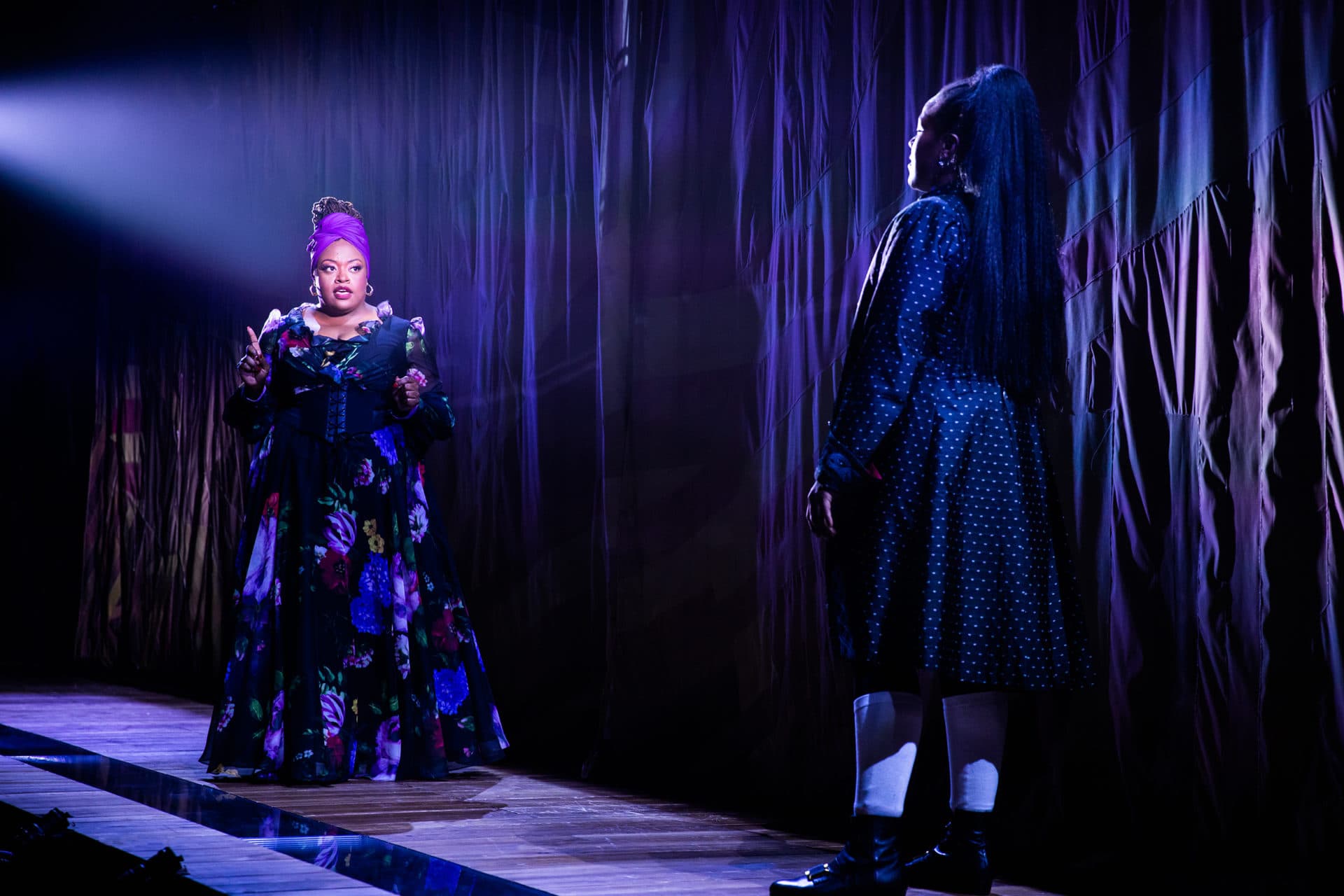
“All men would be tyrants if they could,” she wrote. “If particular care and attention is not paid to the ladies, we are determined to foment a rebellion and will not hold ourselves bound by any laws in which we have no voice or representation.”
As part of the play’s debut, the A.R.T. partnered with ArtsBoston and The Network of Arts Administrators of Color to curate programs and process history as part of their “Declaration Reclamation” workshops. There were events held at libraries across the city that gave insight into immigrant experiences, delved into family histories and had kids building the kind of monuments they want to see.
“I became really interested in who does not feel like they have access to this story in American history, who feels completely separate from it, who feels excluded by it, who feels hurt by it,” said Julia Schachnik, A.R.T.'s community organizing manager.
One of their final events held was called “Black Reparations: Apology, Repair, and Reconciliation.” It presented an opportunity for dialogue between professionals who are all doing work, research, and activism, around how to hold this nation accountable for the harms its caused Black, Indigenous and other communities of color.
“I'm here in this conversation because of the link, the deep link between indigenous folks and enslaved black folks, and their experience, the duality of our experiences at the founding of this country,” said Mea Johnson, who is Mescalero Apache and a community and cultural organizer. “The ways that our stories have been erased.”
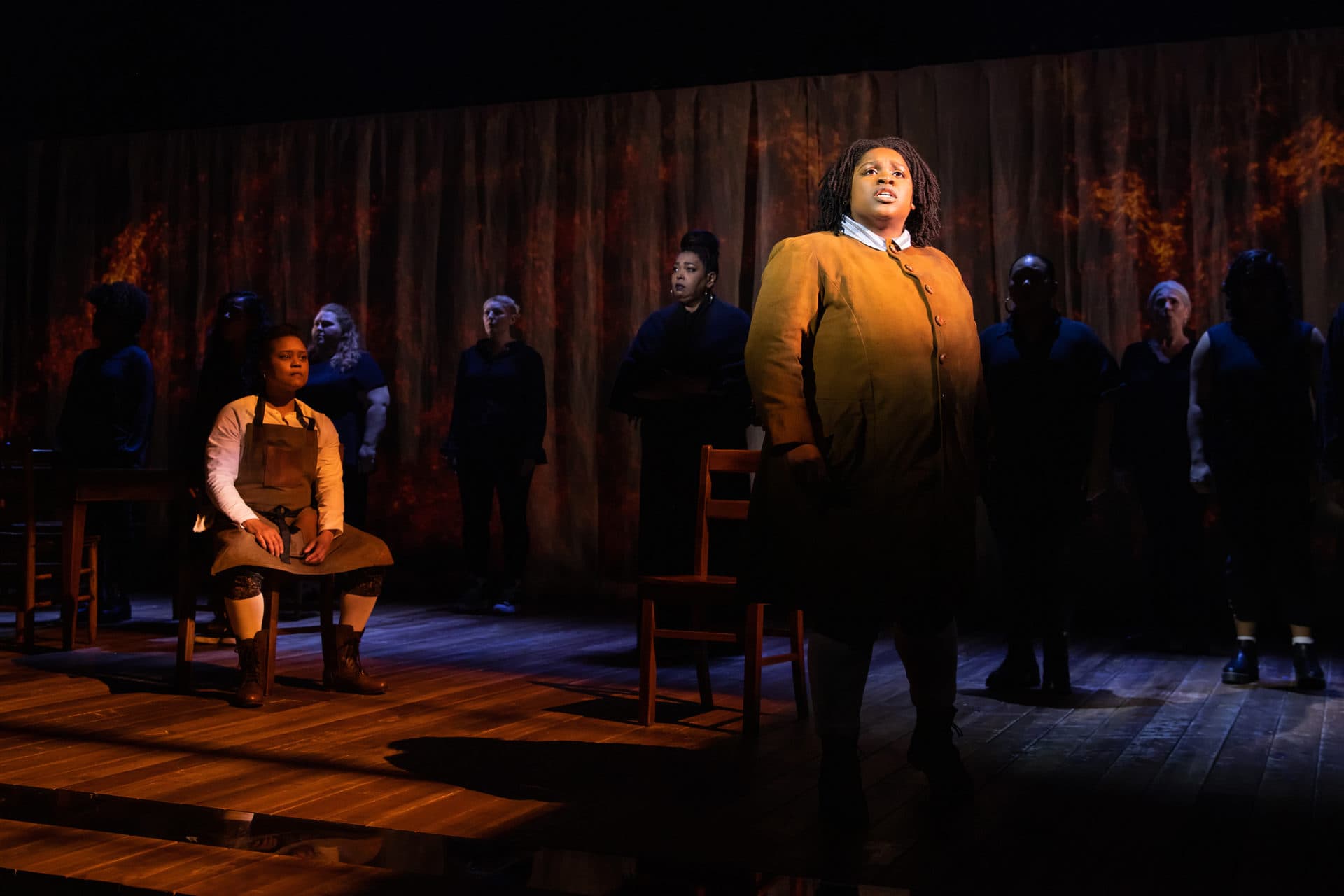
In June, Boston became the first major city to offer a formal, if symbolic apology, for its role in trans-Atlantic slavery. Cambridge is also in the midst of this work through its Racial Justice and Equity Commission with two funds, one focused on reparations for the slave trade, while the other is focused on restitution for the war on drugs, according to Saskia VannJames, another panelist as well as a racial and health equity lobbyist and board member at Massachusetts Recreational Consumer Council.
“Reparations is not an abstract academia,” said VannJames. “It starts with the people. People have already been moving. We've been organizing. We are incredibly thankful for all of our elders and ancestors, for the bread crumbs that you've left us, for us to go back and take them and inform them together.”
In “1776,” Benjamin Franklin says that the founding fathers weren’t demigods. They were mortals trying to start a new nation. That work continues today, a process of healing and undoing, confronting the past while imagining a new future. Actor Sara Porkalob knows the pinnacle of their careers will not be on Broadway playing dead white guys.
“To watch my fellow actors really make these roles their own has been so exciting and so fun,” Porkalob said. “And to also know that “1776” isn't the end of our journey.”
This segment aired on July 21, 2022.
